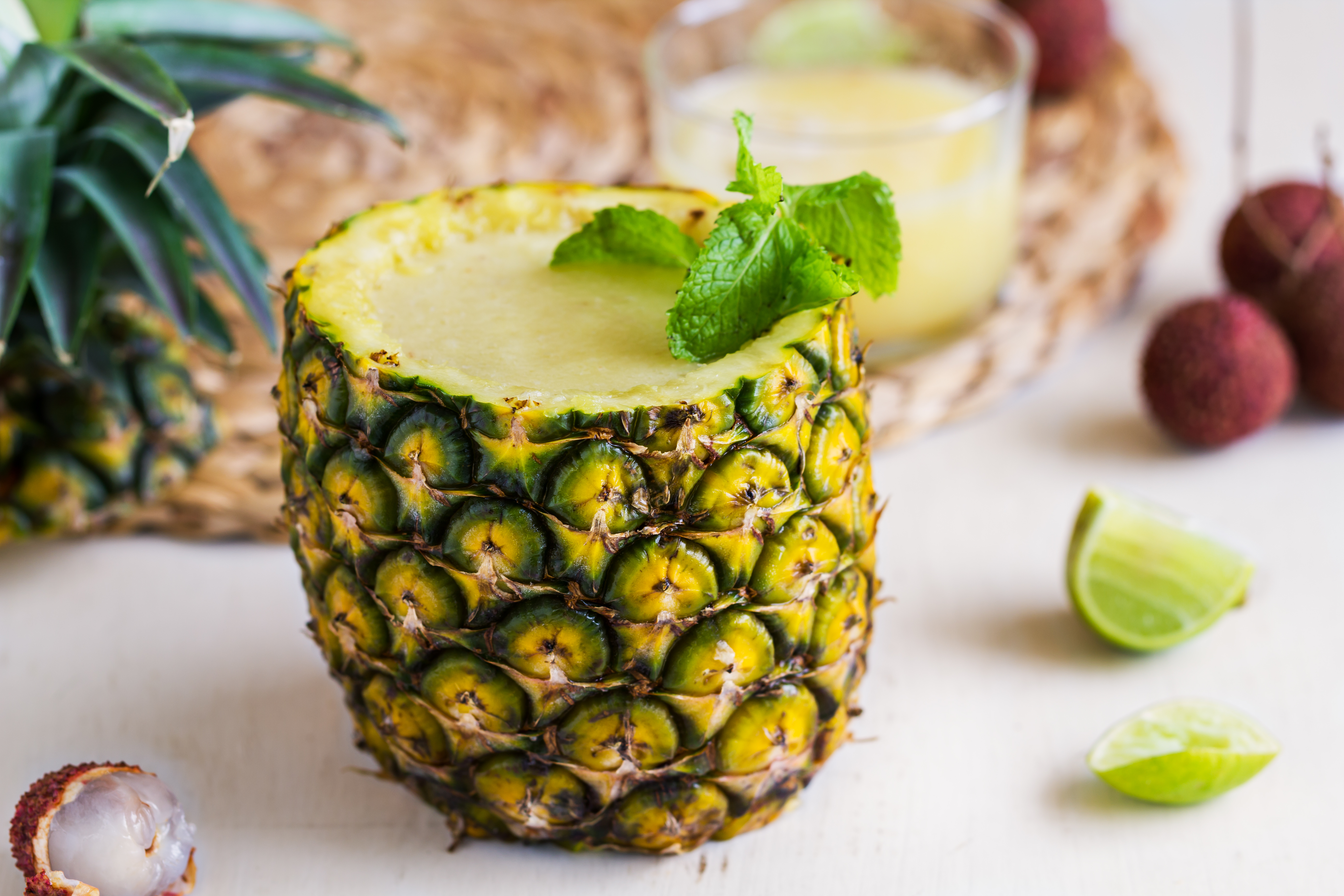NordenBladet — The pineapple is native to southern Brazil and Paraguay, the modern fruit having been developed by native peoples from an almost inedible wild species. The most significant nutritional elements of pineapple are high quantities of vitamin C, manganese and the enzyme bromelain. We’ve researched and collected a significant amount of information about pineapple health benefits and presented them on this page!
1. Anti-Inflammatory – Different parts of the plant have the above traditional uses for a variety of ailments and their effectiveness could be due to the enzyme bromelain, which is extracted from the plant stems (and also present in the juice in small amounts). It is sold as a digestive enzyme to break down proteins and is used medicinally for a diverse range of conditions from hay fever to burns. It’s primary property is anti-inflammatory.
2. Arthritis Benefits – Bromelain from pineapple, when combined with trypsin and rutin could be helpful in reducing inflammation and knee pain for osteoarthritis sufferers, with possible effects on rheumatoid arthritis as well, although the evidence is scant for the latter. Note that while there is some bromelain in the fruit, it is much more abundant in the inedible stalk. However bromelain is available in supplement form.
3. Bone Health – Manganese is one of the important elements needed for the growth and maintenance of healthy bones, helping to prevent loss of bone density and diseases such as osteoporosis that can lead to a higher risk of fractures. 100g of pineapple contains 44% of the RDA of manganese.
4. Kidney Benefits – Pineapple is a safe fruit for people suffering from chronic kidney disease due to its low potassium content (180mg per cup of chopped fresh fruit). It can provide good nutrition for anyone with a chronic condition.
5. Anti-Parasite – Pineapple has been used since old times in the Philippines as a traditional medicine against parasitic diseases.
6. Anti-Cancer – Foods containing bromelain have been linked to chemopreventive action, for example in correlation with colorectal cancer cells. Extract from the plant stems also shows antitumor activity. Vitamin C is also known to strengthen the body against developing cancer.
The Wikipedia page for Bromelain states regarding bromelain “No peer-reviewed research shows any efficacy against tumors”. This is to a certain extent misleading – as although the human research has not been done, there have been numerous scientific papers reporting on anti-cancer effects of bromelain in cell and animal studies: For example a 2012 study in the peer-reviewed Journal Of Medicinal Food “Bromelain-induced apoptosis in GI-101A breast cancer cells”, and a 2013 study in the peer-reviewed Cancer Investigation “Anticancer property of bromelain with therapeutic potential in malignant peritoneal mesothelioma”.
7. Digestive Aid – Bromelain is an enzyme that has been used for centuries as a digestive aid owing to its ability to digest proteins. Some people do not make enough digestive enzymes naturally and benefit from enzyme supplementation.
8. Boosts Immune System – Pineapple is very high in vitamin C. Vitamin C is well known to stimulate the immune system, supporting anti-bacterial and anti-viral action – it can be found in a natural form in pineapple (58% of the recommended daily amount in a 100g serving!).
9. Anti-Blood Clots – There is some evidence that bromelain may help keep platelets in the blood from sticking together, which in turn may help prevent blood clots. If this is the case, it may also promote bleeding in some people and hence might be avoided by people prone to prolonged bleeding.
10. Sinusitis Recovery – Some studies have indicated that bromelain from pineapple may help relieve the symptoms of sinusitis and speed recovery time.
11. Assists E. Coli And Bowel Diseases – Some animal studies have indicated that bromelain may help treat diarrhea related to E. coli infections and reduce inflammation in intestines of people with inflammatory bowel disease.
12. Sore Throat & Infection Remedy – The plant has been used for many years in traditional remedies as a diuretic, to quicken labor, for sore throats, seasickness and venereal disease. Native people in Panama use the leaf juice as a purgative, emmenagogue (stimulates menstruation) and to treat intestinal worms.
13. Fluid Retention – The roots have been used to treat oedema / edema (fluid retention) in Africa and the rind extract for both fractures and hemorrhoids! Scientific research is limited so the evidence is mainly experiential for many of these indications – hopefully the research will begin to investigate more of these potential uses!
Featured image: PantherMedia/Jongjai Jongkasemsuk/Scanpix

